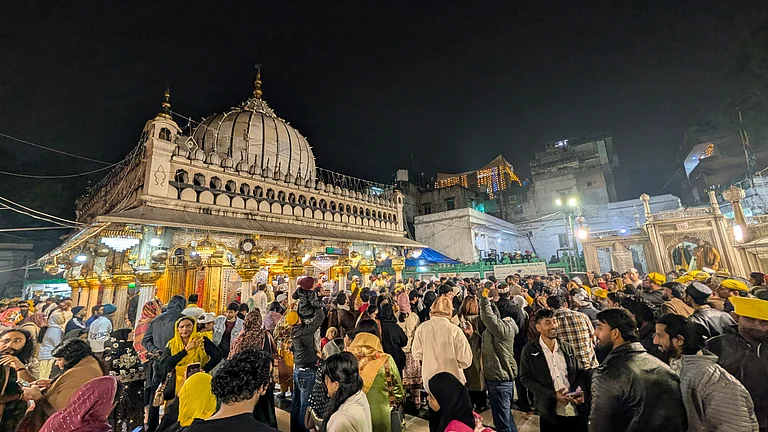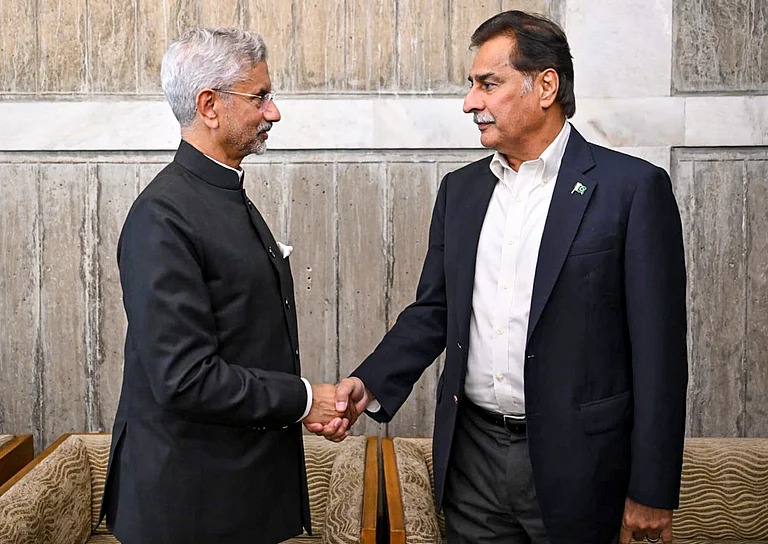The devastation and death caused by Cyclone Ockhi as it whirled past the southern tip of India on November 30 is yet to be enumerated. The pain and sorrow of the fishing community of Vizhinjan, Poonthura, Adimalathura, the worst affected villages in Thiruvananthapuram district, Kerala, will continue to fester into the New Year. Even after a month, the hunt for the missing, for the dead has not seen closure and every other day, the bloated and bleached bodies, unrecognisable and unidentifiable are being brought ashore from as far away as Beypore and Kozhikode in northern Kerala.
The number of dead brought ashore are 72 plus, but to date, only 18 have been identified and identities of 53 are yet to be ascertained. The numbers missing are 92 fishermen, (those who went fishing by country craft) and, 67 on the larger boats and Deep Sea Fishing Vessels (DSFV) from Thiruvananthapuram district alone. The relief operations are still on and there is no real data as to how many are dead and how many are still missing.
Both the state and central government agencies have been lackadaisical not only in alerting the poor, marginalised fisher community but have been slower to press rescue services on a war footing. Interestingly, in the financial year 2017-2018, Rs 2.74 lakh crore was allocated as defence budget, a six per cent hike from the previous year, while only a little over a 1000 crores were allocated for the Ministry of Earth Sciences under which Indian Meteorological Department (IMD) fall under.
The allocated amount includes expenditure for ocean, atmospheric and seismological research and for procurement of technology for this purpose too. The fisheries department does not have a ministry of its own comes under the aegis of the Ministry of Agriculture. So, of course, when the IMD fails to alert the fishermen about the cyclone in the proper manner then we have to rely on the forces for rescue operations.
According to official sources, a total of 23 ships and vessels and 15 aircrafts (Navy, Coast Guard & Air Force combined) were deployed to rescue a total number of 644 fishermen, assist 183 and bring back 14 bodies till date and the search is still ongoing. But what seems strange is that these rescues aircrafts were not equipped to spot the boats in the initial days when the conditions were hazy- the winds were heavy and sea was rough. There are tales of fishermen who floated for four days and could see the aircraft flying overhead but they were not picked up. Meanwhile, the state government’s lethargic attitude was not helping matters either. There was systemic failure on the part of the State Disaster Management Authority to quickly give directions and manage the situation that cost precious lives.
The Prime Minister who came 20 days after the cyclone left a trail of destruction has promised that by Christmas all those who are missing would be returned home. His promise is riding on an already established fact that those fishermen who went fishing on Deep Sea Fishing Vessels (DSFV) would return home for Christmas. The monetary salve promised by the Central government seems to reek of certain degree of callousness and indifference. The official twitter handle of the PM Narendra Modi’s tweets on Cyclone Ockhi, like his visit, seems like an afterthought. His first tweet on Cyclone Ockhi came on December 4 and it was not a condolence message to the bereaved but of one monitoring the situation. And the second of the Cyclone Ockhi related tweet was for the BJP in Gujarat “Karyakartas to focus on helping people across the state. Our Karyakartas should devote themselves to providing all possible assistance and stand shoulder to shoulder with fellow citizens.”
This tweet read like a campaign message when it seemed evident that the cyclone Ockhi would make a landfall in Gujarat where a hectic election campaign for the state polls were on. On a total, the Narendra Modi twitter handle tweeted around 9 Ockhi related tweets which was about the same number he tweeted in Hindi, Gujarati and English about his seaplane ride and bringing seaplane services to India even as the Ockhi related dead were being counted in the southern states of India.
Post the PM’s visit, the Centre sanctioned a total of Rs 325 crore for Kerala, Tamil Nadu and Lakshadweep combined and relief money for the dead and homeless from the Prime Minister’s distress relief fund. Fr Eugene Periera, vicar general of the Latin Catholic Church, who met the PM with the other officials of the church, had pressed the PM to attend to the gaps in the communication system that led to the failure in communicating the information of the approaching Cyclone to the fishermen. “He understood the urgency of the matter and seemed to empathise with the fishing community’s agony,” says Fr Periera.
What is distressing is that there is no proper data as to how many are missing or how many fishermen are there in Kerala state. Unlike the bigger vessels which are registered, the fishermen in the smaller country crafts are unregistered. The youngsters getting initiated into this activity, maybe just 15 or 16 when they first venture into the sea. The reason why there is a mismatch in the numbers put out by the state government and the fishing community.
Though the expectation of the 92 missing, who went on the smaller crafts, returning is fast diminishing, there seems to be some hope that the 67 fishermen on the larger boats from Thiruvananthapuram and 15 vessels with probably around 10-11 people on board on each of these vessels from Kochi area may come back by Christmas time. The deep sea fishing vessels which travel 200- 700 nautical miles in search of fish usually return after 45 days and a festival like Christmas is expected to bring them all back to land to celebrate but many
families are worried if there will be a Christmas for them at all.
Activists working among the fishing community say that both central and state governments are still in rescue mode even after nearly a month. They have failed to move on to trauma care and rehabilitation of those who have lost their near ones or who are injured. This seems to have a big impact on the community which is struggling to get back on their feet and cope with the disaster. The community hopes that Christmas and New Year will bring back
their dear ones.
Lessons Learnt from Ockhi (Box)
Dr Sunil Mohammed, principal scientist with CMFRI (Central Marine Fisheries Research Institute) who has been recommending Automatic Location Communicators for these fishing vessels which will not only track the fishing vessels but also prevent them from entering territorial waters of other countries, points out that the state government should speedily put into place certain steps to prevent future tragedies on the scale as this one.
How many boats in the sea?
A simple token system, wherein, boats going out to sea takes a token from the local port/ fisheries authorities and returns it on coming back can work easily. Where are these boats in the sea? Installing satellite based Automatic Identification System (AIS) in all boats can help governments locate the boats.
A key fisheries management tool to ensure compliance to zonal and spatial restrictions in the sea, collectively called Vessel Monitoring System or VMS and uses satellites to transmit positional information. The national policy on marine fisheries (NPMF 2017) indicates the government's intent in moving towards a VMS, but very little has been done in this regard.
How can we communicate with these boats out at sea?
It is important to have an established shore-vessel communication facility as is already existing for commercial shipping vessels. Only then can we convey news and weather warnings efficiently to fishing vessels out in the sea. Many vessels carry the VHF radio which can communicate only within a radius of a few kilometers. This is not sufficient, and therefore, there should be a concerted effort by the Ministry of Communications and Ministry of Agriculture (fisheries) to provide this facility to all fishing vessels above 15m overall length.
Are our cyclone categories/bulletins easily understandable to people? A reading of the IMD's weather bulletins throws up several inadequacies. In the first place the distribution list does not have the Ministry of Agriculture under which fisheries comes.
Never take nature for granted: By their own admission the IMD hit some new ground; the Ockhi did not behave in a conventional manner, and therefore, their advance warnings were not early enough.


























